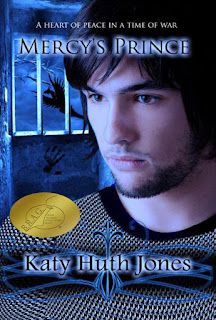Odo. Bishop of Bayeux. The assumed patron behind that famous tapestry (which is actually an embroidery).

Look him up on any random article and you'll read that he wasn't a very nice person. (Well, of course, in MY opinion none of those Normans, from Duke William downward, were nice!) But I've been wondering lately whether all this anti-Odo stuff is nothing more than blaming him as a scapegoat for the actions of his big brother?
It was Duke William who was obsessed with invading England, not Odo. Duke William who was determined to conquer England, not Odo. Little Brother Odo, was merely carrying out orders. And it might have been that he was right cheesed off to have to do so.
(Let me, at this point, emphasise that these are purely my own "I wonder?" thoughts, I have no indisputable evidence whatsoever!)
Let me suggest a few questions:
- What if Odo hadn't wanted to be Bishop of Bayeux in the first place - but William wanted to have control (over brother and Bayeux)?
- What if Odo opposed William's determination to invade England, counselling that it 'was not a good idea'?
- What if all Odo wanted to do was settle down as Lord of a Manor with the woman he loved, raise a family and live Happily Ever After?
- What if the Tapestry was his way of putting HIS point of view about the Conquest? A way of thumbing his nose at Big Brother Bill?
Odo was the son of tanner's daughter Herleve and Count Herluin de Conteville, so a younger step-brother to William, not a full brother. (William was born circa 1028). Odo's birth date is usually given as 1035 but did his mother marry before the death of her lover, Richard II of Normandy, William's father (died summer 1035)? Had Richard arranged the marriage before he set off on pilgrimage to Jerusalem? It's possible. (Herleve could never have become his official wife - she had no use as an alliance or political gain for him.) He would have wanted her safely secured in a position of importance though - a countess. So maybe an earlier birth date of 1034 for Odo is possible?
William promoted Odo as Bishop of Bayeux in 1049, so he was quite young - obviously a political position, not a practical one, Odo was only about 15. Unless Herleve had been married off much earlier (possible). If born around 1031 he would have been 18 or so in 1049. Was Odo, perhaps one of those irritating teenagers forever chasing girls, getting into trouble being an embarrassment to Duke William - who was struggling to keep his Duchy intact?How to be rid of an annoying younger brother? Oh I know - make him a Bishop, that'll keep him under control.
Odo had a good reputation as a statesman, and as a warrior, despite being a Christian cleric. He took part in the Council of Lillebonne, for instance, nor, as stressed in the Tapestry, did he actually fight at Hastings - his role was to encourage the troops and keep up morale.
William made Odo Earl of Kent in 1067 and when William returned to Normandy, he served as Regent, and therefore led the Norman army against English rebellion, although his precise remit of power is unknown. He acquired numerous estates in England, most being located in south-east England (Kent) and East Anglia). He had a reputation for ruthlessness and womanising.
However, in 1076 he turned against William and was tried at Penenden Heath in Kent for defrauding the Crown and the Diocese of Canterbury. The trial lasted three days and, found guilty, he was forced to return properties and assets, then in 1082/3 Odo found himself imprisoned for planning an expedition of military might to Rome. Why, is not known. Later rumour implies that he wished to make himself Pope during an ongoing controversy regarding the investiture of Pope Gregory VII. Or I wonder, was he trying to usurp William by giving evidence that his brother had misled the Church over his invasion of England? After all, Bill had claimed that he had the right of a Papal blessing... Whatever his reason, Odo spent the next five years in prison, all his estates and the title of Earl of Kent were forfeit. So there was something big behind his demise. He did keep his title of Bishop of Bayeux, however. (Which makes me think this move was initiated by William, not the Church. If the Church, would he not have been excommunicated?)
William reluctantly released him in 1087 soon before he died (alone and unmourned). After William's death, Odo went back to England and supported William's eldest son, Robert Curthose for the English throne, even though it had been left to a younger son, William Rufus. Robert's rebellion failed in 1088 and Odo returned to Normandy to serve Robert there.
Odo then went on the First Crusade but died on the journey to Palermo in January or February 1097 and was buried in Palermo Cathedral.
He is depicted again in the Bayeux tapestry with an unidentified woman: all we know is that her name was Aelfgyva ( a common eleventh century name). Is he striking her cheek or caressing her? I think it is a caress, and this is the woman he loved, but William did not approve and so forbade the relationship.
I also think that the two brothers detested each other. Which might explain a lot of things. And also explains why I have sympathy for Odo!
One day I might write a novel about Odo. A novel of pure conjecture, admitted, but one that portrays Odo in a completely different light to what has, so far, been written about him.
Got any of your own views? Comments welcome!



























